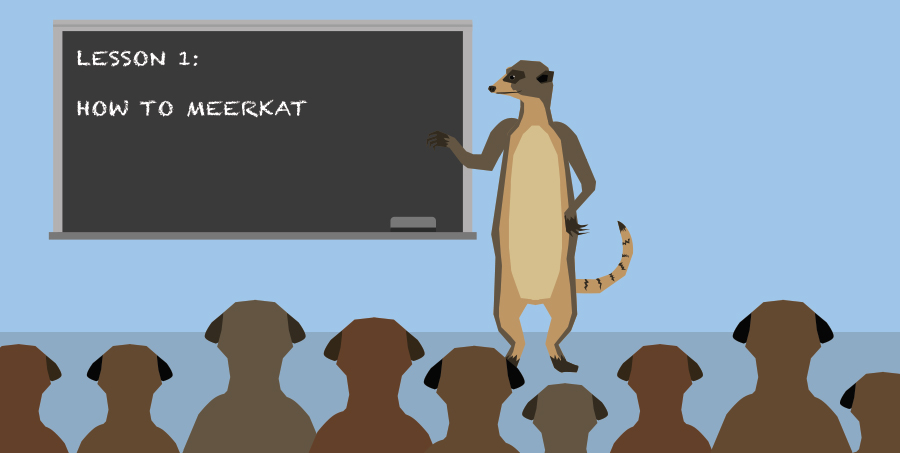The origin of the English word 'team' comes from a word that referred to a group of draft animals all working together to pull something forward. Back in ye olden days, the best 'teams' were animals that were the same species, the same size and moving in the same direction. But that doesn't really work when it comes to humans. Teams are made up of different people with different skills, weaknesses, goals, values, etc. How do all these individuals work together to do something more complicated than pull a plough, something like say, designing and building a successful product?
Companies, especially in the competitive world of tech, have been trying to figure out the answer to that question for a while now. It seems like the best solution they've come up with is issuing matching hoodies with company logos on them. While these 'Zuck-xedos' are cool and all, faithfully wearing matching sweatshirts doesn't mean you're a team.
Real teamwork requires investment and consistent effort from every individual involved. Contrary to popular belief, there is an 'i' in team, you and everyone else. Each team member should ask themselves 'What can I contribute to the team?' and expect the same from others.
Here at ZURB we have a set of values that we look for and cultivate in our team members. They keep us focused on our common goals, but also inspire us to think about what we can contribute as individuals for the greater good. This results in a strong team that can do mighty things. We just went through the process of refining our values. Here are a few of the simple ideas that inspired them and can help you become a valuable member of any team you join:
1. Pull Your Weight

Every member in the team needs to be contributing value. This doesn't mean we always need to do everything perfectly or have all the answers, nobody can rightly expect that. But everyone on the team should be seeing us put forth effort. This is closely related to the ZURBian value 'Make It Happen.' Sometimes in order to make things happen we need to go above and beyond. A few late nights might be necessary to wrap up a project and earn that win!
But what if we're trying but struggling? Take initiative and reach out to the team, don't just ignore or avoid the problem. Asking a lot of questions and reaching out for help early and often shows others that we're serious about solving the issue and are willing to put in the work to learn new things.
2. Stick Together

It's easy to stay close to each other when a product is doing well or a project wraps up to rave reviews. It's when things don't go right, when the team fails, that everyone has an opportunity to show they are real team members, a.k.a. ride or dies. Losing, whether as a team or as an individual, is never easy, but it's always an opportunity to learn. When faced with a fail, we try to step up and point out the silver lining in the loss. Doing this can help the team pull a win from the experience. When the team does achieve a win, it's embraced as a team. ZURBians use the mighty 'we' when celebrating our victories and look for ways to highlight the efforts of everyone involved. This is closely related to our value of 'Find Wins Together.' Focusing only on raising your own profile usually backfires and breaks up team solidarity.
3. Lend A Hand

Every ZURBian is encouraged to 'Be a Coach,' not just the partners or leads. If someone has the skills or know-how that can benefit others, we share it and elevate the team without hesitation. While everyone would probably like to think they are 100% awesome by our own design, the truth is we've all had mentors throughout our careers that helped us along the way. Remember that and pay it forward.
When others ask for help, it can be tempting to reply back with "Sorry, I've got stuff to do." But guess what? We all have stuff to do, but we try to make time to be there for your teammates. We also try not to hesitate to reach out if we're having trouble. It can be difficult to admit when you're struggling, but get over yourself. No one is perfect and no one should expect you to be, just tell your team how you're struggling. And when help is offered, let go of the ego and allow people help you do things better.
4. Improve Yourself, Improve the Team

Sometimes new learning doesn't happen during the 9 to 5. We may need to put forth extra effort to build up some skills or learn some new things. We also need to continually improve our communication because it's the glue that holds teams together. Learn to work with people, not just alongside them. Real teamwork isn't just about getting work done it's working to accomplish a goal together. You'll need to communicate. A lot.
Look for ways to add more value, and help your teammates do the same. This is related to our value 'Build on Opportunity.' Be advised, the side effects of teamwork may result in extreme frustration, anger, euphoric happiness, hi-fiving, cheering, and possible group chants. If you experience one or more of these symptoms do not discontinue, you're doing it right.
Being a real team requires hard work from everyone involved. You're only as strong as your weakest link. So invest in yourself and each other, and keep asking about the 'i' in your team. What can I do to help others? What can I do to improve my skills? What can I do to help my teammates? Get these things right and those matching hoodies will actually start to mean something.
